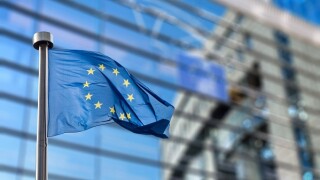-
Sponsored by Gorodissky & PartnersThe customs initiated an administrative court case at the Commercial Court of St Petersburg against Foreign Brands, a Russian company that imported goods labelled with a trademark "Dr Pepper Est. 1885." This is a routine procedure for customs authorities when they suspect transportation of counterfeit goods through the border. The owner of the trademark in such cases is a third person with limited participation in the proceedings
-
Sponsored by Patrinos & KilimirisThe newly-born Greek law on trademarks implementing Directive (EU) 2015/2436 has an attention-worthy provision, relating to the renewal of trademarks within their grace period. More specifically, the new Greek law on trademarks provides that the payment of the renewal fee can be made within the last six months of the protection’s term. It can also be made within an additional term of six months following the expiry of the formal protection’s term, subject to the payment of the renewal fee increased by 50% and without negating third parties’ rights acquired in the meantime.
-
Sponsored by Gün and PartnersArtificial intelligence (AI), which does not yet have a solid definition, can generally be described as “the ability of a digital computer or computer controlled robot to perform tasks commonly associated with intelligent beings.” AI systems have started to play a part in our daily life and today they carry out crucial roles for human beings. For instance, BlueDot’s AI system was among the first in the world to identify the emerging risk from COVID-19.
-
Sponsored by MMXWith many blocks on .xxx domain names expiring next year, brand owners should consider using new tools to prevent their trademarks being available to third parties
-
Sponsored by AnJie Law FirmOn January 15 2020, US President Donald Trump and Chinese vice-premier He Liu signed a trade agreement which President Trump has described as "the biggest deal anybody has ever seen." The deal promises to be the first phase of a larger new trade agreement between the US and China, announcing a significant de-escalation in the trade war between the two giants that has dragged along for more than one year. Of particular interest to those in the pharmaceutical industry will be Sections C and D of the first chapter of the trade agreement, which outline China's commitments to improve protection and enforcement of pharmaceutical-related patent rights, and in particular to creating an effective mechanism for early resolution of patent disputes between generic drug companies and pharmaceutical innovators, or a Chinese drug patent linkage system, as many may like to put it.
-
Sponsored by GoldenGate LawyersOn April 21 2020, Beijing High Court issued the guiding opinions on the determination of damages in cases of infringement of intellectual property rights and unfair competition as well as the judging standards for statutory compensation ("关于侵害知识产权及不正当竞争案件确定损害赔偿的指导意见及法定赔偿的裁判标准") (opinions).
-
Sponsored by InspicosAt the beginning of 1998, the EPO began allowing oral proceedings to be held as a video conference (OJ EPO 1997, 572). Video conferencing was only available for oral proceedings held before an examining division, i.e. prior to grant of the European patent. Oral proceedings before examining divisions are more suited to video conferencing as they are usually shorter and less complex than opposition oral proceedings, they are not open to the public, and only one party is present (the patent applicant).
-
Sponsored by Cabinet Beau de LoménieIn a much awaited preliminary decision, the Court of Justice of the European Union (CJEU) ruled on April 2 2020 (C-567/18 Coty Germany GmbH v Amazon Services Europe Sarl et al) on the responsibilities of Amazon warehouse-keepers in relation to the sale by a third-party seller on the online marketplace, Amazon Marketplace, of perfume bottles for which the rights had not been exhausted.
-
Sponsored by Maiwald Intellectual PropertyThe European Commission, the European Medicines Agency (EMA) and the relevant national authorities recently agreed on a number of measures to mitigate the impact of COVID-19 disruptions on the conduct of inspections at manufacturing sites or other sites relevant to medicinal products in the European Union. These are included in the Notice to stakeholders: Questions and answers on regulatory expectations for medicinal products for human use during the COVID-19 pandemic, https://ec.europa.eu/health/sites/health/files/human-use/docs/guidance_regulatory_covid19_en.pdf.
-
Sponsored by RNA, Technology and IP AttorneysCOVID-19 has created an unprecedented crisis resulting in the Indian government clamping down on the movement of people, goods and services. This has had an impact on every facet of business and has encouraged consumers to focus on their health and well-being. With social distancing becoming the "new normal", the impact of coronavirus on brick-and-mortar stores during the lockdown phase and post lifting of stay-at-home orders is likely to be profound. It is expected that consumers will avoid close interaction and crowded places such as malls and supermarkets in times to come. Thus, in the short to medium term, consumers' shopping habits will witness a gradual but definite shift from brick and mortar stores to online portals and e-stores. Brands in India are therefore increasingly focusing on setting up their own e-stores, creating arrangements and partnerships with online portals. Big offline stores such as Future Group (Easy Day and Big Bazaar), Spencer's Retail, Metro Cash & Carry and Walmart's Best Price stores have increased efforts to service customers online, building a comprehensive model to deliver groceries and goods. Many stores have started to partner with food delivery platforms such as Swiggy, taxi-hailing app Uber Eats, and bike taxi startup Rapido. This article focuses on how brands' sudden shift to online will need a strategic focus in terms of building a brand protection strategy.
-
Sponsored by OLIVARESUnfortunately, Mexico remains on the Watch List of the Annual Special 301 Report on Intellectual Property Protection and Review of Notorious Markets for Counterfeiting and Piracy compiled by the Office of the United States Trade Representative (USTR). In this document, the United States government reviews and evaluates the protection actions that governments have taken to fight against counterfeits and piracy. The document concluded that the Mexican government has so far not adequately implemented the necessary actions for the protection of intellectual property rights.
-
Sponsored by Tilleke & GibbinsAlmost a year and a half after Myanmar enacted the Trademark Law 2019 on January 30 2019, the same question still lingers in the minds of many brand owners and attorneys: "When will the Trademark Law come into force?"
Managing IP is part of Legal Benchmarking Limited, 1-2 Paris Gardens, London, SE1 8ND
Copyright © Legal Benchmarking Limited and its affiliated companies 2026
Accessibility | Terms of Use | Privacy Policy | Modern Slavery Statement
Cookies Settings











